

BLOGS > APRIL 16, 2019
BY KLAUDIA JANEK
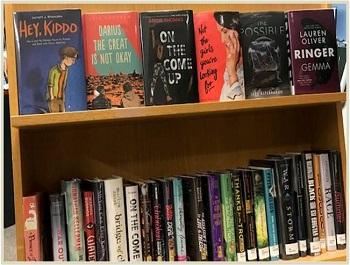
As a librarian in an International Baccalaureate® school, I was more than excited when the IB finally published the “Ideal Libraries: A Guide for Schools” document. I have it printed and spiral bound at my desk so I can refer to it often. I share it with anyone who will listen.
As the IB moves forward in integrating the library and librarian at the center of inquiry and research, my state and many local literacy groups seem to de-emphasize the importance of certified school librarians and funded school libraries. “We don’t have the money” is the reason given for why Michigan finds itself with only about 8% of public schools with a full-time certified school librarian in the building. I find myself feeling lucky that I happen to work in an IB school in a program and curriculum that says my position is important to learners. I am always advocating for school libraries and librarians and feel so passionate about it that I channel some of this energy into facilitating IB workshops for new IB school librarians. I was just trained in leading the new Role of the Librarian, which is a category three workshop and ideally runs with the librarians and administrators in the workshop together.
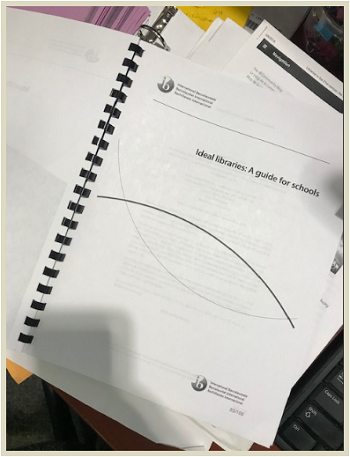
This guide came out about the same time I was going through the AASL National School Library Standards, and right away I could see how things could easily be connected. The “Ideal Libraries” guide is written in such a way that it can be implemented globally. One of the major points I had to wrap my mind around is that, in the United States, you need to have a master’s degree in library science and a teaching certificate to be a school librarian. In some countries you can have a two-year or four-year undergraduate degree and be considered a librarian because you studied librarianship. I’ve trained librarians who have a master’s degree in library science and are hired as school librarians. They are not expected to have a teaching background. So, unlike the NSLS, the “Ideal Libraries” guide has to take all these variations into consideration.
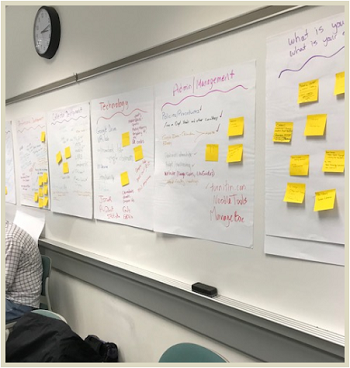
I like the emphasis on the idea that the library and the librarian make up the entire system. It’s hard to be successful if you have one, but not the other. The foundations of the system include the people, collections and services (3).
Another section of the guide worth sharing is about misinterpreting the role of the library and librarian. Schools that use the library as a storage space or a punishment space are not utilizing the space to its fullest potential. I am not a special education teacher, and I am not equipped to deal with students who have various learning challenges, so using the library as a holding space or a place of time-out is a very poor choice by administrators. I personally know of a few schools that are clearing out the books to make way for “collaborative learning commons,” but without a teacher or resources, it just becomes a gathering space that does not encourage inquiry, action or reflection. What is the point?
Implementing the IB programme is a journey. It cannot happen all at once because it would be too overwhelming. I set goals for myself at the beginning of the year and work on them during the school year. The IB continuum values multilingualism. As a result, every IB school has a language policy, and we are all expected to uphold it based on what we teach. I saw my role in this by being able to provide library resources in the languages that we teach and those that our students speak at home. Not only do I have physical books in my library collection, but our research databases also have a translation feature that I teach all students how to use.
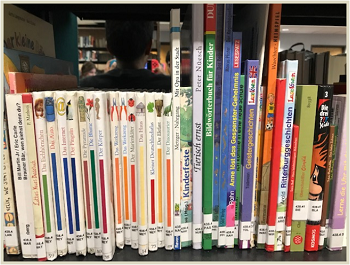
Multiliteracies are discussed in the guide, and I see the library playing a large role in the implementation of this. As a teacher, I support information literacy, media literacy, digital literacy and critical literacy. This is the type of content I was trained to teach, but I do need the support of all the other classroom teachers. They need to support and reinforce my message in the classroom. For example, if I say that Wikipedia needs to be used with care and is usually not the best choice for academic research (we tend to use it as a starting point), I would expect that a teacher would support this message. My teaching would not carry any weight if a classroom teacher said that they didn’t care if Wikipedia was used as the sole source of information. If I teach students how to use research databases, I need my teachers to require them in class as well. They are also teachers of multiliteracies.
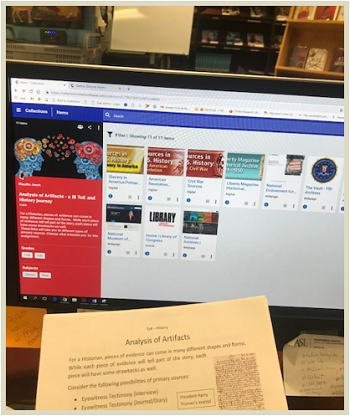
The guide also discusses libraries and inquiry (9). It states, “Libraries are where most forms of inquiry, not just academic ones, begin. Whether students go to the library to work on an assignment, investigate a question, consult virtual information sites...inquiry is initiated by the learner, not when the learner is assigned an inquiry” (9). I would say this is the same message that we get at school librarian workshops, teacher professional development sessions about project-based learning, universal design for learning or whatever program your school is using for inquiry – the message about school librarians being the center of inquiry is pretty consistent. As librarians, we are trained to create conditions for inquiry.
I think we also have a lot of educational technology tools at our disposal. Google’s G Suite™ for Education and Google Classroom have changed the way we collaborate with each other. We have a BYOD system in place and students are allowed to use their smartphones. I have been using Collections by Destiny® to curate sources for my teachers and students based on what they are doing in the classroom. Social media has been a powerful tool in getting my message out to parents and students on different platforms. I can share examples of what I do with students that are based on the “Ideal Libraries” guide. Almost everything students do in here is based on inquiry. Social media is also a good way to network with other school librarians. I shared my “to be read” pile on YouTube, and we posted it to our state school library association newsletter.
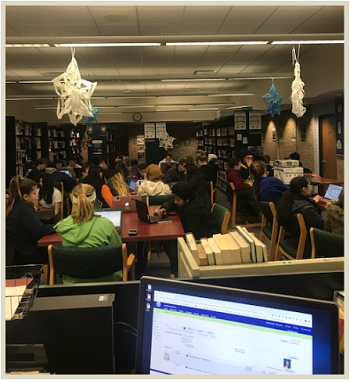
This document is provided to all IB World Schools. It would make for a great professional development day or conference session. It could even be used for an after-school meeting or lunch-and-learn topic of discussion. There are a lot of ways to approach this. At workshops, I’ve been leading activities where we can share our spaces. There is a lot we can learn from each other when we can see each other’s spaces. We can share our websites, our libraries, our online collections and our social media personal learning networks. Here is a video of my school library. I encourage you to share your own so that we can have a peek into how our professional lives intersect in our commonalities and our challenges.
“Ideal Libraries: A Guide for Schools.” IBO, 2018, pp. 1-23.
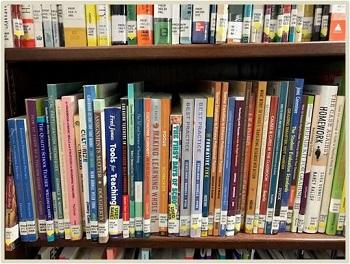
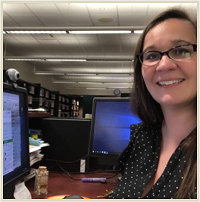
KLAUDIA JANEK
IB Teacher, Librarian
International Academy, Bloomfield Hills, Michigan
MAME board member, Extended Essay Coordinator, IB Librarian, IB Workshop Leader, IB On-line PD Facilitator, IB Workshop Developer, ALA / AASL / YALSA member. Visit my library portal page. Follow me on Twitter @kjanek.
Unbeatable Deals on Favorite Next-in-Series Books
July 15, 2025
Plot twist! For a limited time only, Follett Content is offering next-in-series releases at an amazing preorder discount. These hit series are beloved by readers of all ages, and the new installments are sure to be favorites in your classroom or...
Read more
An Author Interview with Drew Daywalt
June 27, 2025
Drew Daywalt, award-winning author of the best-selling The Day the Crayons Quit series, is about to release his second middle grade book with illustrator Mike Lowery, No Sam! and the Meow of Deception. The title continues the hilarious adventures of Sam...
Read more
An Author Interview with Adam Wallenta and Makana Wallenta
June 27, 2025
Get ready to rock the galaxy with the first volume of Punk Taco – a wildly imaginative, music-fueled sci-fi adventure from father-son duo Adam and Makana Wallenta. Created when Makana was just five years old, this award-winning graphic novel now debuts...
Read more
An Author Interview with Lisa Manuzak Wiley
June 27, 2025
A bewitching new graphic novel series is arriving this fall!Author-illustrator Lisa Manuzak Wiley, who grew up in Hawaii, blends cozy fantasy, sisterhood, and tropical charm in a heartfelt homage to her roots: The Witches of Pepperwood Bay Vol. 1. Lisa...
Read more
What We're Reading – Books to Add to Your TBR List
June 4, 2025
As a Follett Content Outside Sales Consultant, I’m not only an avid reader, but also a passionate book reviewer! I’ve curated my top 10 book picks that are perfect for adding to your To Be Read (TBR) list. These titles...
Read more
Author Joseph Koszary on the Changes Made to the International Baccalaureate Extended Essay
May 22, 2025
As someone who’s served as an extended essay coordinator, examiner, and supervisor, I’ve grown deeply familiar with the previous incarnation of the extended essay (EE). Like many of you, years of accumulated experience have made supporting students through the process...
Read more